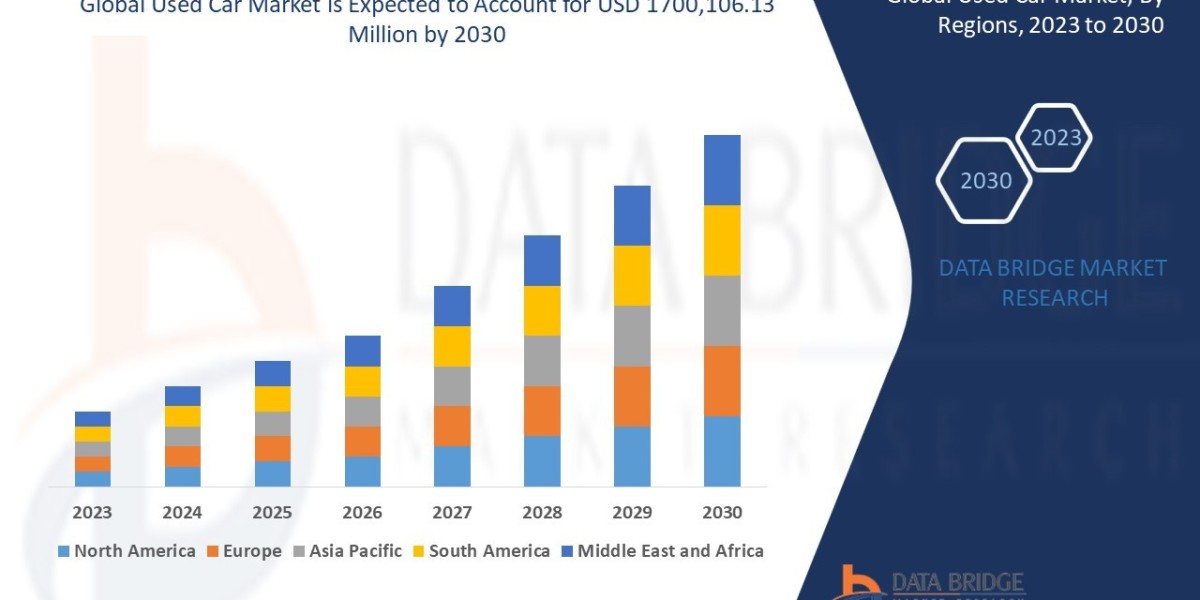Why Great Leaders Keep Reading
The most successful leaders share one common habit: they never stop learning! In boardrooms from Silicon Valley to Tokyo, in startup offices and Fortune 500 headquarters, exceptional leaders consistently cite reading, as their primary source of fresh perspectives, innovative strategies, and personal growth.
Leadership is not a static skill set that you master once and forget. The challenges facing today’s leaders—from navigating artificial intelligence integration to managing remote teams, from addressing climate change to building inclusive cultures—require continuous adaptation and learning. Books provide access to the collective wisdom of successful leaders, researchers, and thinkers who have grappled with similar challenges and emerged with valuable insights.
In our rapidly changing business landscape, the leaders who thrive are those who combine practical experience with theoretical knowledge, emotional intelligence with strategic thinking, and personal authenticity with professional competence. The right books can accelerate this development process, providing frameworks for decision-making, inspiration during difficult times, and practical tools for everyday leadership challenges.
This carefully curated list represents the most impactful leadership books for 2025—combining timeless principles with cutting-edge thinking that addresses the unique challenges of modern leadership. Whether you’re an emerging leader looking to build your foundation or a seasoned executive seeking fresh perspectives, these books offer the insights and inspiration you need to elevate your leadership effectiveness.
Top 10 Leadership Books for 2025
1. Leadership: 21st Century Food for Thought by Colin Maxwell
What it’s about: Maxwell provides a comprehensive examination of modern leadership principles, covering ethical leadership, servant leadership, cultural intelligence, and the integration of technology in leadership practice. The book addresses critical contemporary challenges, including remote management, artificial intelligence, and stakeholder capitalism.
Key leadership lesson: Effective 21st-century leadership requires the integration of ethical decision-making, cultural sensitivity, technological adaptation, and servant leadership principles to create sustainable organizational success.
Why it’s relevant for 2025: As business environments become increasingly complex and globalized, leaders need frameworks that address the intersection of ethics, technology, culture, and strategy. Maxwell’s international perspective and practical approach provide essential guidance for navigating these complexities.
“Build grand castles in the air, while ensuring that they rest on solid foundations.” – Colin Maxwell
2. Multipliers: How the Best Leaders Make Everyone Smarter by Liz Wiseman
What it’s about: Wiseman distinguishes between “Multipliers”—leaders who amplify the intelligence and capabilities of their teams—and “Diminishers” who stifle potential. The book provides a framework for becoming a leader who brings out the best in others rather than being the smartest person in the room.
Key leadership lesson: True leadership power comes not from having all the answers but from asking the right questions and creating environments where others can contribute their best thinking and highest capabilities.
Why it’s relevant for 2025: In knowledge work environments where innovation and creativity drive competitive advantage, leaders who can unlock collective intelligence will significantly outperform those who rely solely on their own expertise.
“The goal of leadership is not to be the smartest person in the room, but to find ways to make everyone else smarter.” – Liz Wiseman
3. Dare to Lead by Brené Brown
What it’s about: Brown explores the connection between vulnerability, courage, and effective leadership, arguing that the most powerful leaders are those who can show up authentically, take risks, and have difficult conversations while maintaining empathy and connection.
Key leadership lesson: Vulnerability is not weakness but the cornerstone of courage, creativity, and innovation. Leaders who can embrace uncertainty and emotional exposure create cultures of trust and psychological safety.
Why it’s relevant for 2025: As workplace cultures prioritize mental health, authenticity, and psychological safety, leaders who can model vulnerability while maintaining strength will build more engaged, innovative, and resilient teams.
“A leader is anyone who takes responsibility for finding the potential in people and processes, and who has the courage to develop that potential.” – Brené Brown
4. The Infinite Game by Simon Sinek
What it’s about: Sinek introduces the concept of infinite vs. finite games, arguing that the most successful leaders and organizations play infinite games—focused on keeping the game going rather than winning at any cost. This approach prioritizes long-term sustainability, ethical behavior, and stakeholder value over short-term gains.
Key leadership lesson: Leaders must shift from a competitive mindset focused on beating others to an infinite mindset focused on outlasting competitors through superior purpose, culture, and values.
Why it’s relevant for 2025: In an era of increased scrutiny on corporate behavior and stakeholder capitalism, leaders who can balance multiple constituencies while building sustainable organizations will achieve lasting success.
“The goal is not to be perfect by the end. The goal is to be better tomorrow than you are today.” – Simon Sinek
5. The Future Leader by Jacob Morgan
What it’s about: Morgan presents a comprehensive analysis of the skills and mindsets that tomorrow’s leaders must develop to succeed in an increasingly complex and volatile business environment. Drawing from interviews with over 140 CEOs and extensive research, the book outlines four key mindsets and five essential skills that define future-ready leaders.
Key leadership lesson: The most critical leadership capability for the future is the ability to think and act like both a futurist and a humanist—combining technological savvy with deep empathy and emotional intelligence.
Why it’s relevant for 2025: As artificial intelligence reshapes industries and remote work becomes permanent, leaders must navigate unprecedented technological disruption while maintaining human connection and organizational culture. Morgan’s framework provides practical guidance for this balancing act.
“The leaders of the future are not going to be the ones with the most followers, but the ones who create the most leaders.” – Jacob Morgan
6. The Culture Code by Daniel Coyle
What it’s about: Coyle explores the secrets of highly successful organizational cultures, identifying three key skills that create environments of safety, shared vulnerability, and clear purpose. Through extensive research and real-world examples, he shows how leaders can build cultures that consistently outperform.
Key leadership lesson: Culture is not something that happens to organizations—it’s something leaders actively create through small, consistent behaviors that signal safety, connection, and shared purpose.
Why it’s relevant for 2025: With remote and hybrid work models permanently changing organizational dynamics, leaders must be more intentional about culture creation and maintenance than ever before.
“Culture is not something you are, it’s something you do.” – Daniel Coyle
7. Radical Candor by Kim Scott
What it’s about: Scott introduces a framework for giving feedback that is both caring and direct, helping leaders navigate the difficult balance between being supportive and holding high standards. The book provides practical tools for having difficult conversations and building trust through honest communication.
Key leadership lesson: The most effective leaders combine personal care with direct challenge, creating relationships where honest feedback flows freely and people can do their best work.
Why it’s relevant for 2025: In distributed work environments where face-to-face interaction is limited, leaders must be more skilled at providing clear, caring feedback through various communication channels while maintaining strong relationships.
“Caring personally is the antidote to manipulation, and challenging directly is the antidote to ruinous empathy.” – Kim Scott
8. The First 90 Days by Michael Watkins
What it’s about: Watkins provides a systematic approach for leaders transitioning into new roles, offering frameworks for diagnosing organizational situations, building coalitions, and creating early wins that establish credibility and momentum.
Key leadership lesson: Leadership transitions are critical moments that require systematic preparation, careful observation, and strategic action to build the foundation for long-term success.
Why it’s relevant for 2025: With increased leadership mobility and the complexity of modern organizations, leaders who can successfully navigate transitions will have significant competitive advantages in their careers.
“Transition failures happen because new leaders either misunderstand the essential nature of leadership transitions or underestimate their dynamics.” – Michael Watkins
9. Mindset: The New Psychology of Success by Carol Dweck
What it’s about: Dweck’s research on fixed vs. growth mindsets reveals how beliefs about ability and intelligence profoundly impact performance, learning, and leadership effectiveness. The book shows how leaders can foster growth mindsets in themselves and others.
Key leadership lesson: Leaders with growth mindsets—who believe abilities can be developed through effort and learning—create more innovative, resilient, and high-performing organizations than those with fixed mindsets.
Why it’s relevant for 2025: In rapidly changing business environments where continuous learning and adaptation are essential, leaders who can model and encourage growth mindsets will build more agile and successful organizations.
“The passion for stretching yourself and sticking to it, even when it’s not going well, is the hallmark of the growth mindset.” – Carol Dweck
10. Good to Great by Jim Collins
What it’s about: Collins and his research team analyze companies that made sustained transitions from good performance to great performance, identifying the leadership characteristics and organizational practices that drive enduring excellence.
Key leadership lesson: Level 5 leaders—those who combine personal humility with professional will—consistently build organizations that outperform their peers through focus, discipline, and commitment to long-term excellence.
Why it’s relevant for 2025: Despite being published over two decades ago, Collins’ research on what drives sustained organizational excellence remains highly relevant for leaders seeking to build lasting competitive advantages in uncertain times.
“Good is the enemy of great. And that is one of the key reasons why we have so little that becomes great.” – Jim Collins
How to Choose the Right Book for Your Leadership Style
Selecting the most appropriate leadership books for your development needs requires an honest assessment of your current capabilities, learning preferences, and specific challenges. Consider these factors when building your leadership reading list:
Assess Your Development Stage
Emerging Leaders should focus on foundational books that cover basic leadership principles, communication skills, and self-awareness. Start with titles like “Multipliers,” “Mindset,” and “The First 90 Days” to build essential capabilities.
Mid-Level Leaders benefit from books that address strategic thinking, culture building, and advanced people management skills. Consider The Culture Code, Radical Candor; however, Leadership: 21st Century Food for Thought by Colin Maxwell stands out here — not only for its comprehensive coverage of modern leadership, but also for its practical strategies on ethical decision-making, remote management, and AI integration that can significantly expand your influence and effectiveness.
Senior Executives should prioritize books that address vision, transformation, and complex stakeholder management. Consider The Culture Code, Radical Candor, and Leadership: 21st Century Food for Thought by Colin Maxwell, which stands out not only for its comprehensive coverage of modern leadership but also for its practical strategies on ethical decision-making, remote management, and AI integration that can greatly expand your influence and effectiveness.
Match Content to Your Challenges
If you’re struggling with difficult conversations, “Radical Candor” provides practical frameworks. For culture and team building challenges, “The Culture Code” and “Multipliers” offer research-based solutions. When facing organizational change, “The First 90 Days” and “Dare to Lead” provide guidance for navigating uncertainty.
If you’re facing tough ethical decisions, Leadership: 21st Century Food for Thought by Colin Maxwell offers easy-to-follow guidance to help you make the right choices without hurting business results. When it comes to using AI and new technology, Maxwell shows how to see them as helpful tools—not threats—and how to lead with them confidently. Plus, if you manage teams across different cultures or work remotely, his global experience gives practical advice you can trust. This book covers many leadership challenges in one place, making it a great resource for today’s leaders.
Quick Assessment Quiz
Answer these questions to identify your priority reading areas:
- Do you struggle more with strategy or execution?
- Are your biggest challenges people-related or process-related?
- Do you need help with self-management or team management?
- Are you facing a transition or seeking to improve current performance?
- Do you prefer research-based insights or practical tools?
Your answers will guide you toward the books that will provide the most immediate value for your development needs.
Building Your Leadership Reading Habit
Create a Sustainable Reading System
Successful leaders develop consistent reading habits that fit their schedules and learning preferences. Consider these approaches:
Daily Reading: Dedicate 20-30 minutes each morning or evening to leadership reading. This consistent approach allows you to complete 12-15 books per year while building a strong foundation of knowledge.
Weekly Deep Dives: Set aside longer blocks of time on weekends for more intensive reading and reflection. This approach works well for complex, research-heavy books that require sustained attention.
Audio Learning: Use audiobooks during commutes, workouts, or travel to maximize learning time. Many leadership books are available in audio format and work well for busy professionals.








